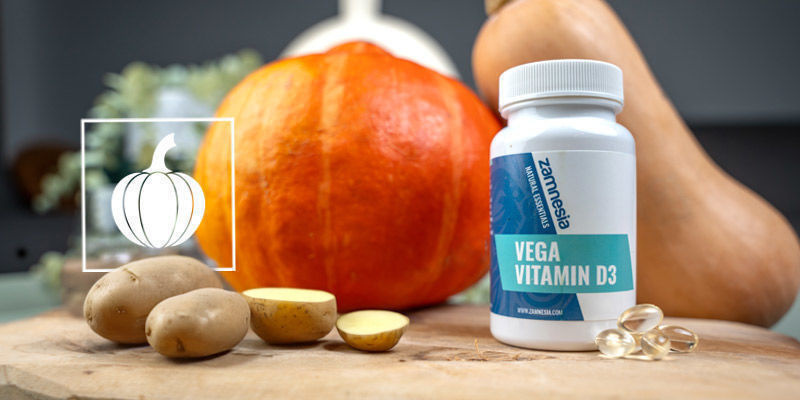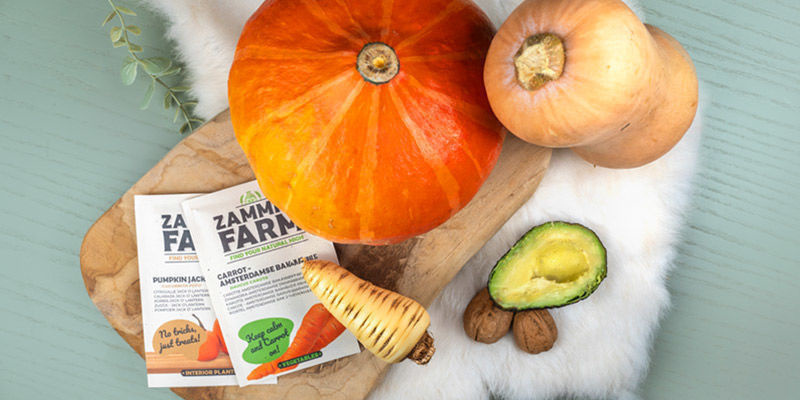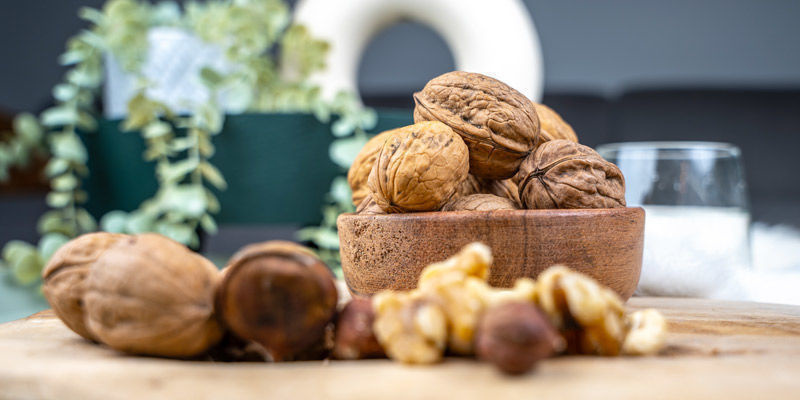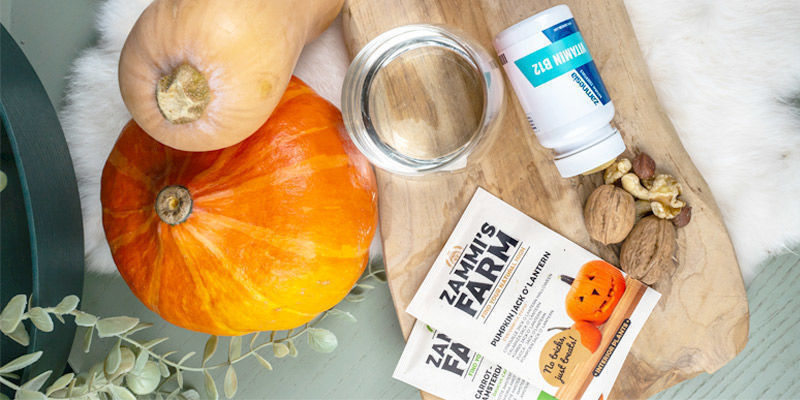
Comprehensive Guide To Autumn Season Health
Autumn is the favourite season of many, but it can bring with it periods of low mood and poor health. With that in mind, this article offers a guide to maintaining top health and wellness during fall, offering suggestions for supplements, activities, and foods to consider during the colder, darker months.
Autumn is upon us! This season of change is very beautiful, but it can also make many of us sad and ill, to some degree. As a result, what we put in our bodies and how we spend our time and energy become ever-more vital. By consuming enough beneficial nutrients and engaging in healthy activities, we can take a little more control over our lives to ensure we make it through the autumn and forthcoming winter feeling healthy—mentally and physically.
In this article, we look at supplements, foods, and activities that can help us get through the darkness to the light on the other side!
Most important fall supplements

Before we go any further, we must reiterate that food supplements are no replacement for a balanced, healthy lifestyle and diet. However, if approached correctly, they can be a very good addition to daily life.
With that in mind, we’ve assembled a list of the most important autumn supplements that should help you during the darker seasons!
Vitamin D
Vitamin D is something many of us naturally lack in autumn and winter. During the spring and summer, when the sun is lazily hanging in the sky, our bodies are able to produce copious amounts of this crucial vitamin by synthesising it organically. However, as the sun edges away earlier and earlier each day, this dearth of light has an inhibiting effect on vitamin D production, so it can be helpful to source it externally.
Vitamin D has many roles, but one of the crucial areas it affects is immune health. As we have less vitamin D in our bodies, we are less able to fend off illness, which can make the winter months even more grim—so more vitamin D can improve our immunity across the board.
Vitamin D can be found in supplements as well as many foods, such as fatty fish and eggs. However you choose to take vitamin D, know that it is absorbed better when consumed along with fat.
Vitamin C
Vitamin C, potentially the most well-known vitamin, is crucial for immune support. Now, we don’t rely on the sun for vitamin C, so we don’t necessarily consume less in autumn and winter. However, due to the increased instances of general illness during these times, more vitamin C can be helpful for getting us through. According to the NHS, adults need 40 mg of vitamin C a day.
A healthy diet should supply all of the vitamin C necessary to remain healthy. For reference, consuming over 1000 mg of this vitamin per day can lead to negative health effects.
Natural sources of vitamin C include:
- Citrus fruit, such as oranges and orange juice
- Peppers
- Strawberries
- Blackcurrants
- Broccoli
- Brussels sprouts
- Potatoes
Vitamin B12
Vitamin B12 assists energy production, which can have an overall effect on mental health, cognitive ability, and general feelings of well-being. During the winter months, many individuals find that these faculties reduce of their own accord due to the lack of daylight. Therefore, it’s important to consume healthy levels of vitamin B12 to keep the brain working adequately.
As well as through supplements, vitamin B12 can be sourced from meat, fish, and dairy products. As it mostly comes from animal products, vegans often benefit from using vitamin B12 supplements.
Omega-3
As kids, many of us were told that consuming omega-3 would make us more intelligent. While this claim has been deemed questionable at best, it is still true that this fatty acid can have a significant benefit on both heart and brain health. While important year round, omega-3 is especially valuable during the more sedentary winter months, which can have a negative effect on the health of these two most essential organs.
Omega-3 can be sourced, as we all know, from fish. However, for those who don’t want to eat fish, it can also be found in flaxseed and walnuts.
Zinc
Zinc is a metal that our bodies put to good use in the immune system, and that helps with the healing of wounds. As with all nutrients, vitamins, and minerals, it’s good to have a healthy level in our bodies at all times, rather than rushing to supplement ourselves when we feel we might need it. So it's important to always include zinc in your diet.
You can take zinc supplements for the easy option, but you can also find plentiful zinc in meat, pumpkin seeds, and numerous types of nuts.
How to eat well in autumn

The nutrients listed above are by no means an exhaustive list of everything your body needs during the autumn, but they are perhaps some of the most important nutrients to keep on top of during this period.
As mentioned, while you can use supplements, most people should be able to consume adequate amounts of everything mentioned through their diet. In the following section, we’ll go through some autumn and winter diet tips to help sustain your body and mind.
Seasonal vegetables and fruits

It can help to flow with the seasons rather than fight against them, so seasonal fruit and veg can be our friends!
Depending on your local climate, different foods may or may not be available during autumn. However, some common seasonal fruits and vegetables include:
- Pumpkin
- Beets
- Apples
- Potatoes
- Root vegetables
- Greens (kale, Brussels sprouts, chard, etc)
These are all very healthy options rich in vitamins A, C, and D. They also contain sugar and carbs—which will help you through the winter days—and plenty of fibre, which will help to maintain good gut health.
Fermented products
Fermented products such as pickles, kimchi, kefir, and kombucha can all greatly improve the gut biome, which can affect mood, energy, and improve immunity. You can make them yourself at home with relatively low effort, or buy them in shops. If you buy them, be cautious. There are plenty of products with these names that are basically sugary snacks that qualify as being “fermented”. These products may have a more negative effect on your health than a positive one, so shop around for genuinely healthy versions.
Nuts and seeds

Nuts and seeds are extremely dense sources of a wide range of healthy fats, proteins, vitamins, and minerals. You can eat them raw, sprinkle them on a meal, or blend them in smoothies for easy consumption.
Some particularly healthy examples include:
- Hemp seeds
- Flax/linseed
- Almonds
- Walnuts
- Pumpkin seeds
Herbal teas
Hot herbal teas can support health and, just as importantly, are cosy and comforting companions on a cold, rainy evening.
Some teas we’d recommend include:
- Fresh ginger
- Turmeric
- Chamomile
- Rooibos
- Bonus: hot milk (not technically a tea)
Exercise and physical activity in fall

It’s important to stay active in the colder months, even though it can be hard to get out of bed in the mornings. Some people don’t struggle to keep up intense exercise in the winter and autumn, while others find themselves completely ceasing regular physical activity. For those who struggle, don’t push yourself to overwork if your body’s not feeling it; rather, find something that works with how you’re feeling. It can sound cliche, but yoga is a good option as it's great for your body and mind and can be adapted to be purely relaxing or highly strenuous.
Exercise is known to have the following benefits:
- Mood improvement and stress reduction
- Strengthening the immune system
- Increasing energy and improving physical fitness
- Better sleep quality
- Support for mental health
Mental health in fall

On the same note, you shouldn’t just think of your body at this time of year. You need to think about your mind too—perhaps most importantly. Most people tend to feel a little more sombre and down in the winter, while some struggle profoundly. Now, we’re not suggesting that anything we mention in this article will “cure” these feelings, but there are some techniques known to help ease a negative mood during this darker time of the year.
Seasonal depression
Seasonal affective disorder (SAD) is a depressive mood disorder where seasonal changes trigger an episode of depression. In most people, this depression occurs in autumn/winter, though this isn’t always the case.
SAD can range from moderate to severe, with the most extreme cases looking similar to bipolar disorder. As with all forms of depression, a healthy lifestyle is key for managing it, though this won’t always make it go away. If you struggle with SAD, you’ll need more than this advice to help you, but make no mistake that making small changes can amount to something more profound if maintained over time and with intention.
In addition to the diet and exercise recommendations outlined above, one of easiest ways to address seasonal depression is to get your hands on a so-called SAD therapy light. While it’s unlikely to completely eliminate symptoms, it can work as an adjunct to a healthy lifestyle and diet. These lights come at a range of price points and with different features, so make sure to do your due diligence before making a purchase.
Relaxation techniques
Despite the cosy vibes, it can be surprisingly hard for some people to relax in winter. The low light levels, while decreasing energy, can increase stress. It can therefore be helpful to learn some relaxation techniques to keep stress to a minimum. Exercise and good diet decrease stress and increase relaxation, but you can aid your efforts with the following:
- Meditation and yoga mentioned above
- Deep breathing
- Progressive muscle relaxation
- Listening to relaxing music
- Aromatherapy
Staying healthy in autumn

Keeping active and eating healthy foods in autumn is, for most of us, key to seeing out the darker months without feeling ill and low. It can be a challenge to muster the energy to look after ourselves properly during this season, which is where supplements come in. Although they aren’t as beneficial as naturally nutrient-rich foods, they can make life easier when you find yourself too tired to get out for exercise or to make a healthy meal.
Look after yourself and get cosy!
-
 5 min
3 January 2025
5 Vitamins And Minerals To Boost Your Winter Wellbeing
Do you often fall victim to the winter blues? Fear not! In this article, we take an in-depth look at the main causes of the winter blues as well as illnesses such as the common cold and flu, and...
5 min
3 January 2025
5 Vitamins And Minerals To Boost Your Winter Wellbeing
Do you often fall victim to the winter blues? Fear not! In this article, we take an in-depth look at the main causes of the winter blues as well as illnesses such as the common cold and flu, and...
-
 4 min
11 December 2023
Top 10 Vitamins And Supplements For Winter Season
It's no secret that winter's colder and darker conditions can make us feel a little worn out and tired compared to our summer selves. If this sounds like you, we've got just the ticket: a selection...
4 min
11 December 2023
Top 10 Vitamins And Supplements For Winter Season
It's no secret that winter's colder and darker conditions can make us feel a little worn out and tired compared to our summer selves. If this sounds like you, we've got just the ticket: a selection...
-
 6 min
4 July 2023
Top 10 Rare Superfoods To Boost Well-Being
Looking to take your healthy diet and lifestyle to the next level? Superfoods are packed with nutrients, vitamins, and minerals, and can help make an already healthy routine even better. Keep...
6 min
4 July 2023
Top 10 Rare Superfoods To Boost Well-Being
Looking to take your healthy diet and lifestyle to the next level? Superfoods are packed with nutrients, vitamins, and minerals, and can help make an already healthy routine even better. Keep...
-
 3 min
7 October 2019
8 Reasons Why Autumn Is The Best Season To Smoke Weed
Many people associate autumn with the end of summer. Gone are the long days and warm temperatures... But there's really nothing to mourn! Autumn is the season of pumpkin pie, dank weed, Halloween,...
3 min
7 October 2019
8 Reasons Why Autumn Is The Best Season To Smoke Weed
Many people associate autumn with the end of summer. Gone are the long days and warm temperatures... But there's really nothing to mourn! Autumn is the season of pumpkin pie, dank weed, Halloween,...









 United States
United States













